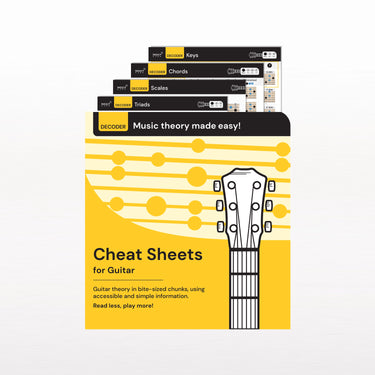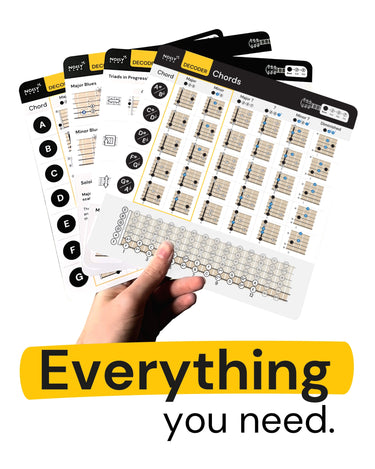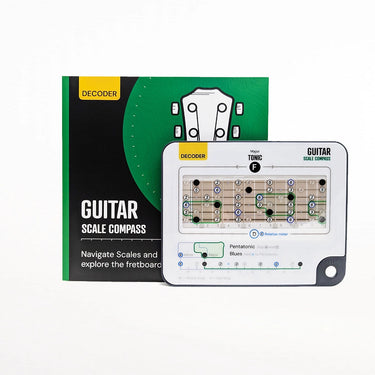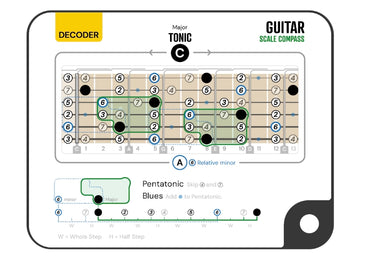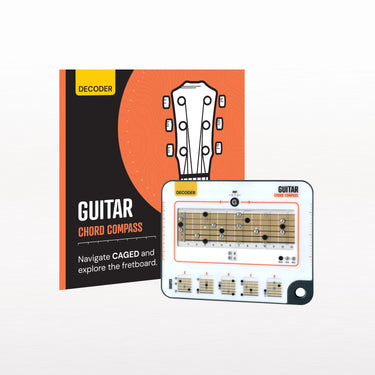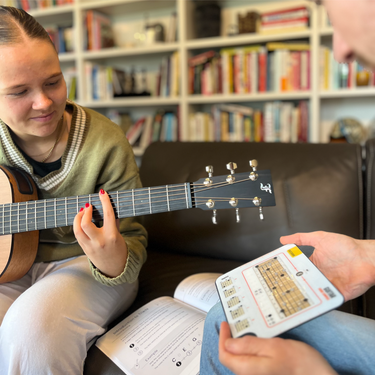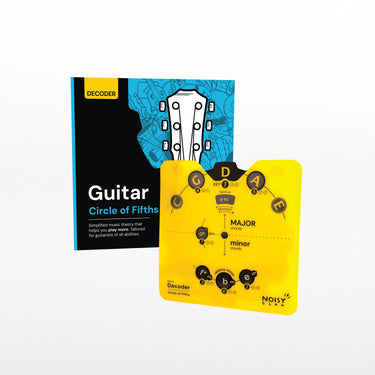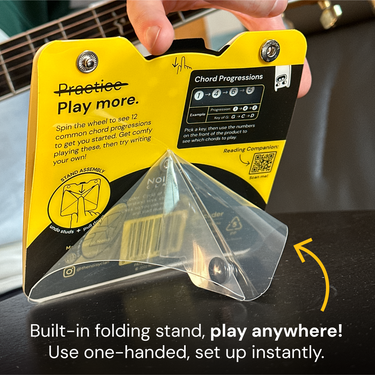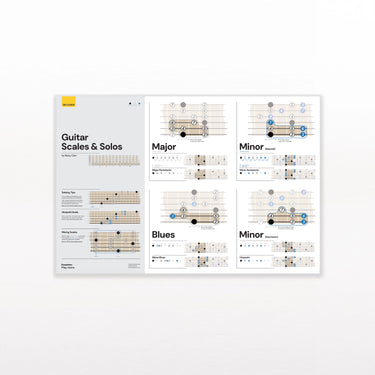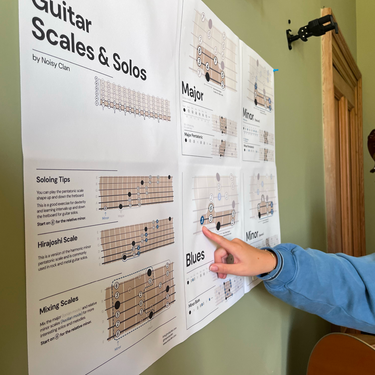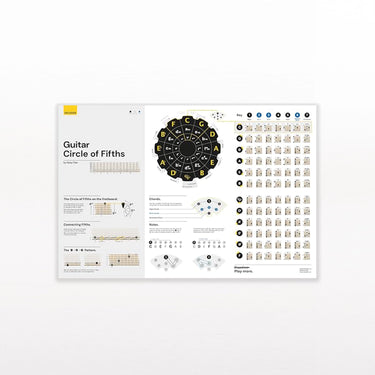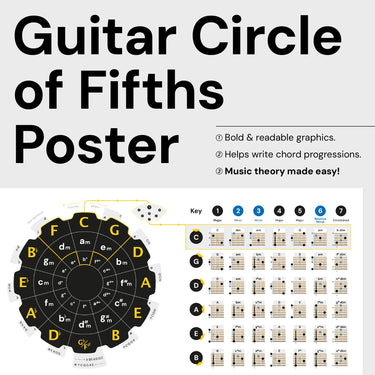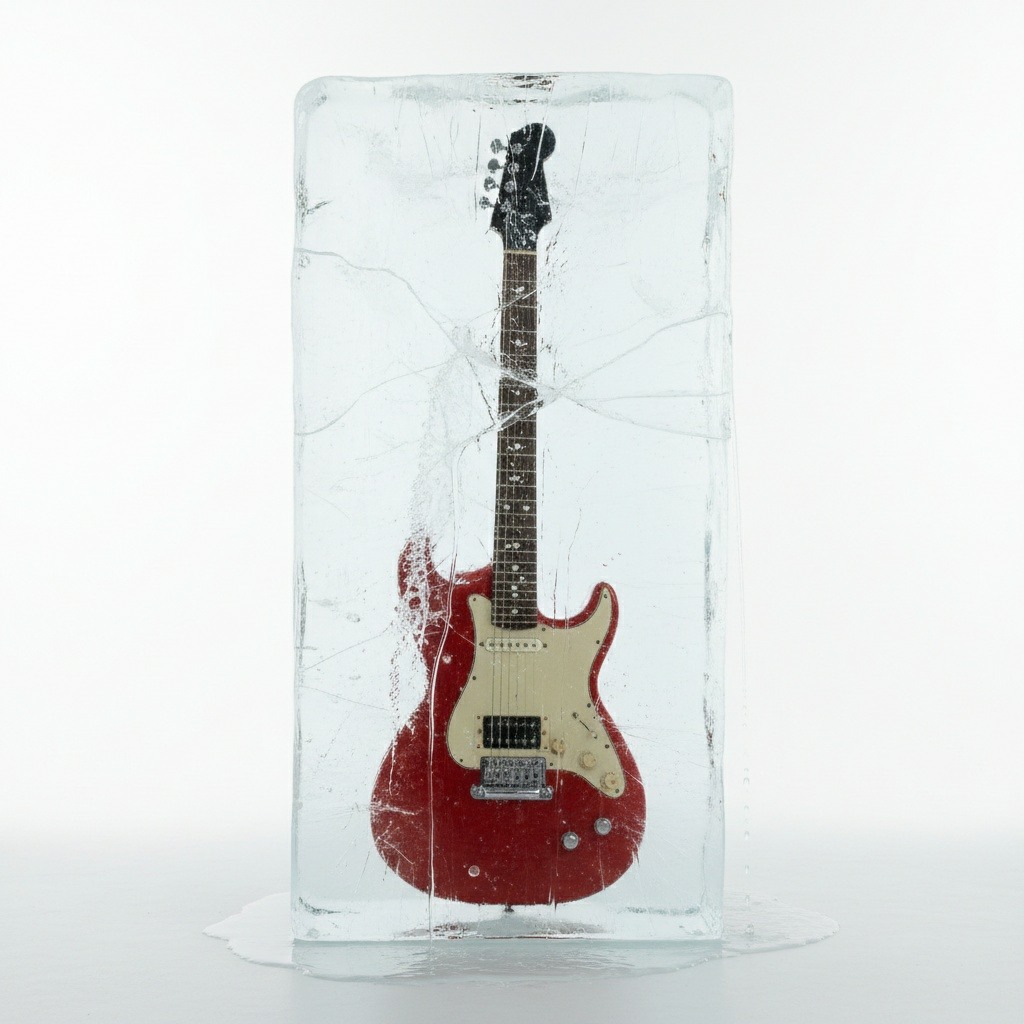
Are you a frozen beginner?
90% of people who start playing guitar quit within one year.
If you're like most beginner guitarists, you know the basics but are stuck at the top of the fretboard without a clear path forward to improve your guitar skills.
You can unlock the fretboard by learning chords, keys, and scales. If this seems easier said than done, you'd be correct.
Our goal as designers of music theory decoders is to simplify music theory and how you can master guitar with it. These interactive tools allow you to easily visualize and connect shapes and patterns that will open up the entire fretboard. Guided Reading companions are packed with examples and tips to get you playing right away.
It might not sound exciting at first, but practicing chords and scales improves ear training and aids in muscle memory and gets you familiar with the fretboard immediately. There are many other benefits of learning music theory.
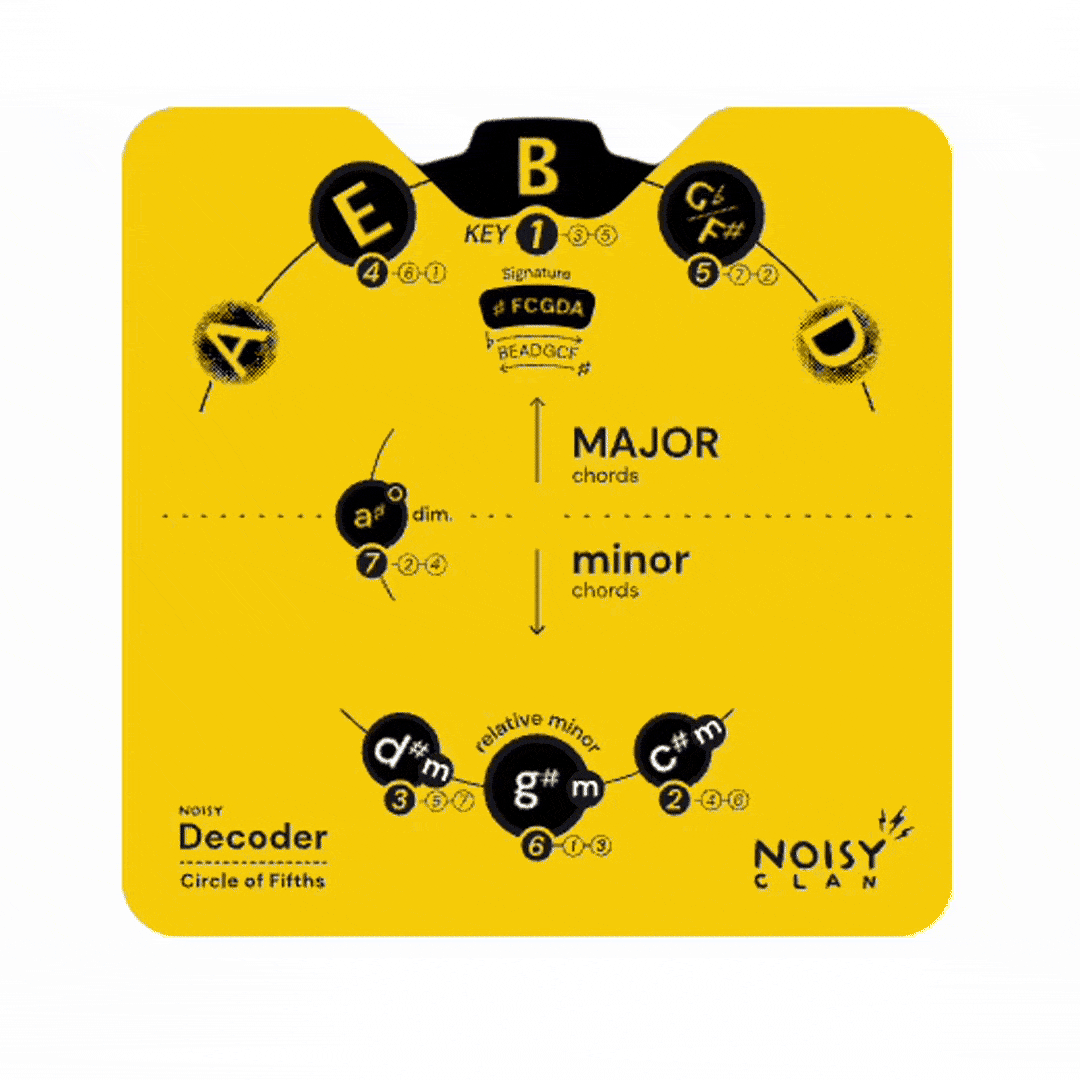
Teaching Tools for Self-Taught Musicians
Unlike basic chord posters and passive reference books, we're combining tactile mechanical tools with a step-by-step companion book so that self-taught, retired players can practice guitar and make real musical breakthroughs without expensive lessons. A fun way to play with music theory.
10+ Lessons for the Price of One
Each book contains 10+ chapter lessons you would otherwise learn with a private teacher. Navigate every chord and scale with a compass. Slide the band up and down the fretboard to instantly identify and connect notes anywhere on the fretboard. Bring it all together with the wheel of fifths, easily transpose key and play 12 common chord progressions.
Bonus Lessons with a Musical Community
Head to play.noisyclan.com for extra music learning content and courses, and free downloads for scales, chords, and more for all instruments. This is a great place to ask for help and support other musicians.
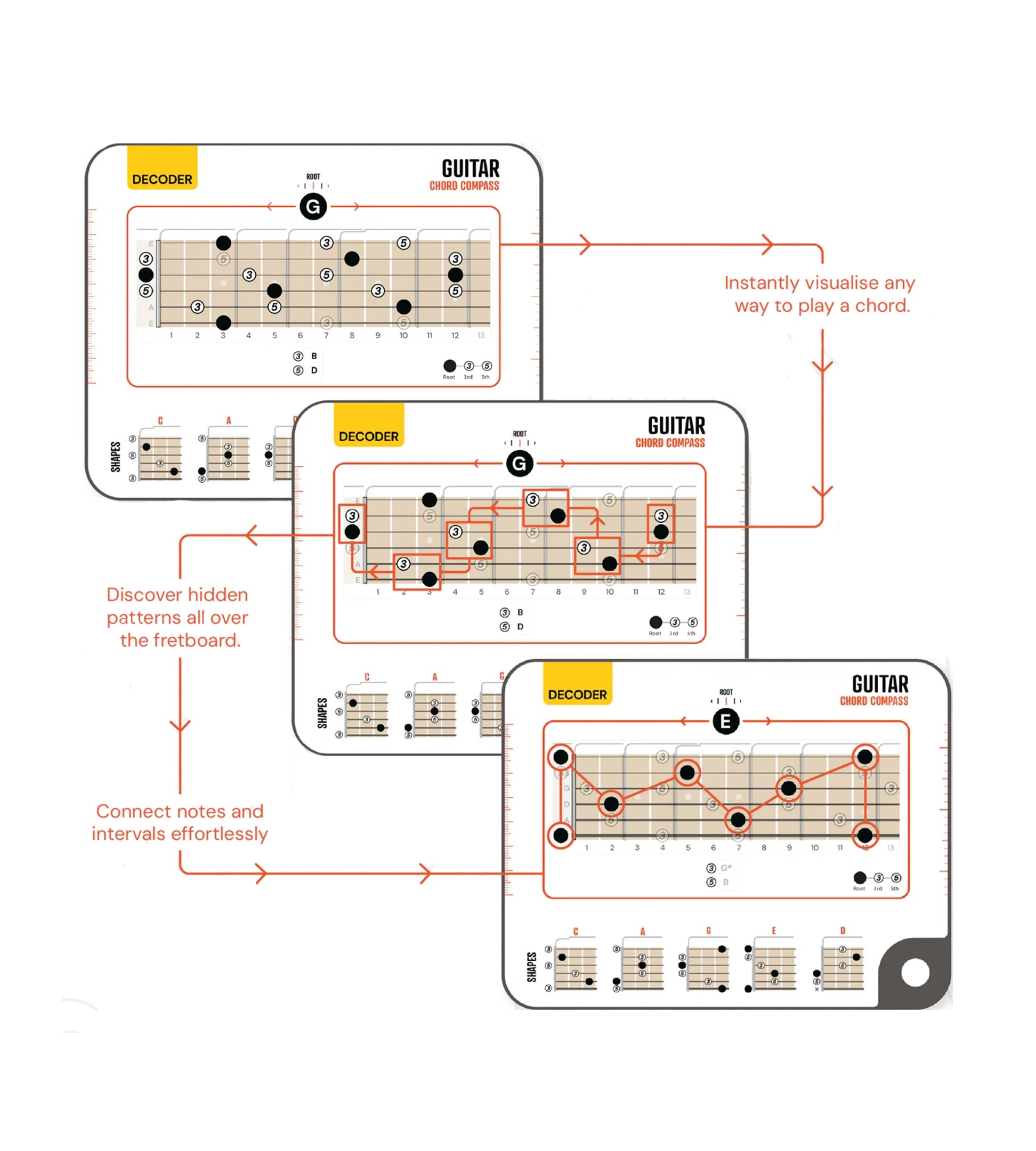
Discover 1000+ Chords
Chords form the backbone of most songs. Whether in pop, rock, jazz, or classical music, chords provide the harmonic structure that supports melodies and rhythms. Understanding chords allows you to comprehend how music is built.
Accompaniment
Chords enable you to accompany yourself or others when singing or playing an instrument. Whether you're strumming guitar chords or playing piano, chords provide the harmonic base that complements melodies.Improvisation and Soloing
Knowing chords helps you understand what notes work well over certain progressions, making it easier to improvise or solo. Chord progressions guide you in choosing notes and scales that sound harmonious, allowing for more creative expression.Songwriting and Composition
Chords are essential for creating songs and composing music. By knowing a variety of chords, you can craft chord progressions that evoke different emotions and styles, giving you more creative freedom to write music.Expanding Musical Versatility
By learning various types of chords (e.g., major, minor, diminished, seventh), you can explore different genres, from blues to jazz, rock, or classical music. Knowing chords opens up a wide variety of musical styles and playing techniques.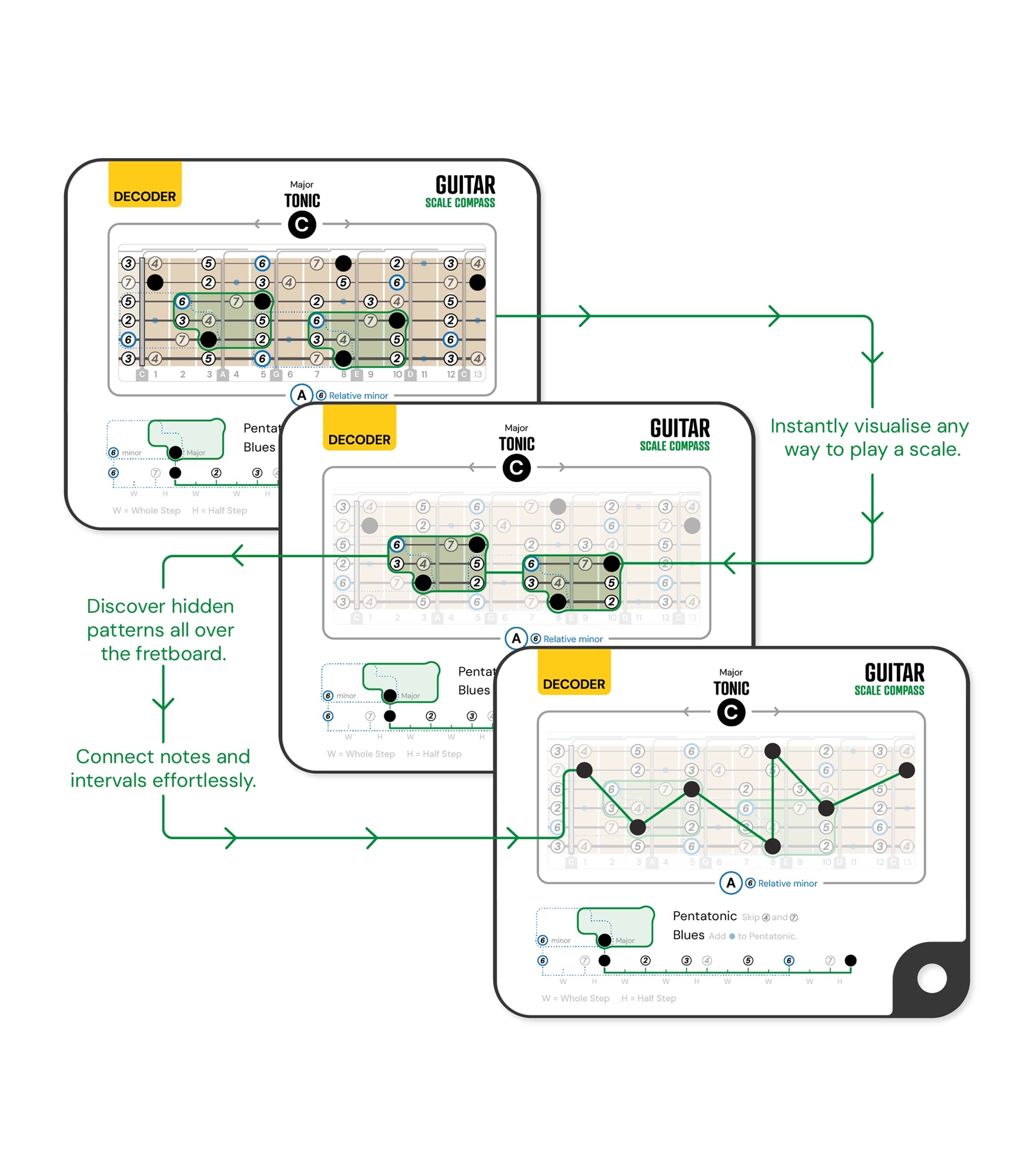
Scale Your Playing
Improved Finger Strength and Dexterity
Practicing scales enhances finger strength, coordination, and agility, making it easier to move across the fretboard and execute faster or more complex passages.Enhanced Soloing and Improvisation
Knowing scales is essential for crafting solos and improvising. By learning various scales (e.g., pentatonic, major, minor), you'll have the tools to play melodies that fit harmonically over chord progressions.Better Rhythm and Timing
Practicing scales with a metronome helps you improve your timing, which is essential for playing in sync with others or performing in different musical styles.Versatility Across Genres
Scales open the door to playing in various genres like blues, rock, jazz, and classical. Each genre tends to emphasize certain scales, and knowing them helps you adapt to different musical contexts.Composition and Songwriting
Scales serve as the foundation for creating melodies and harmonies, giving you a framework for songwriting and composition, allowing you to explore new musical ideas with confidence.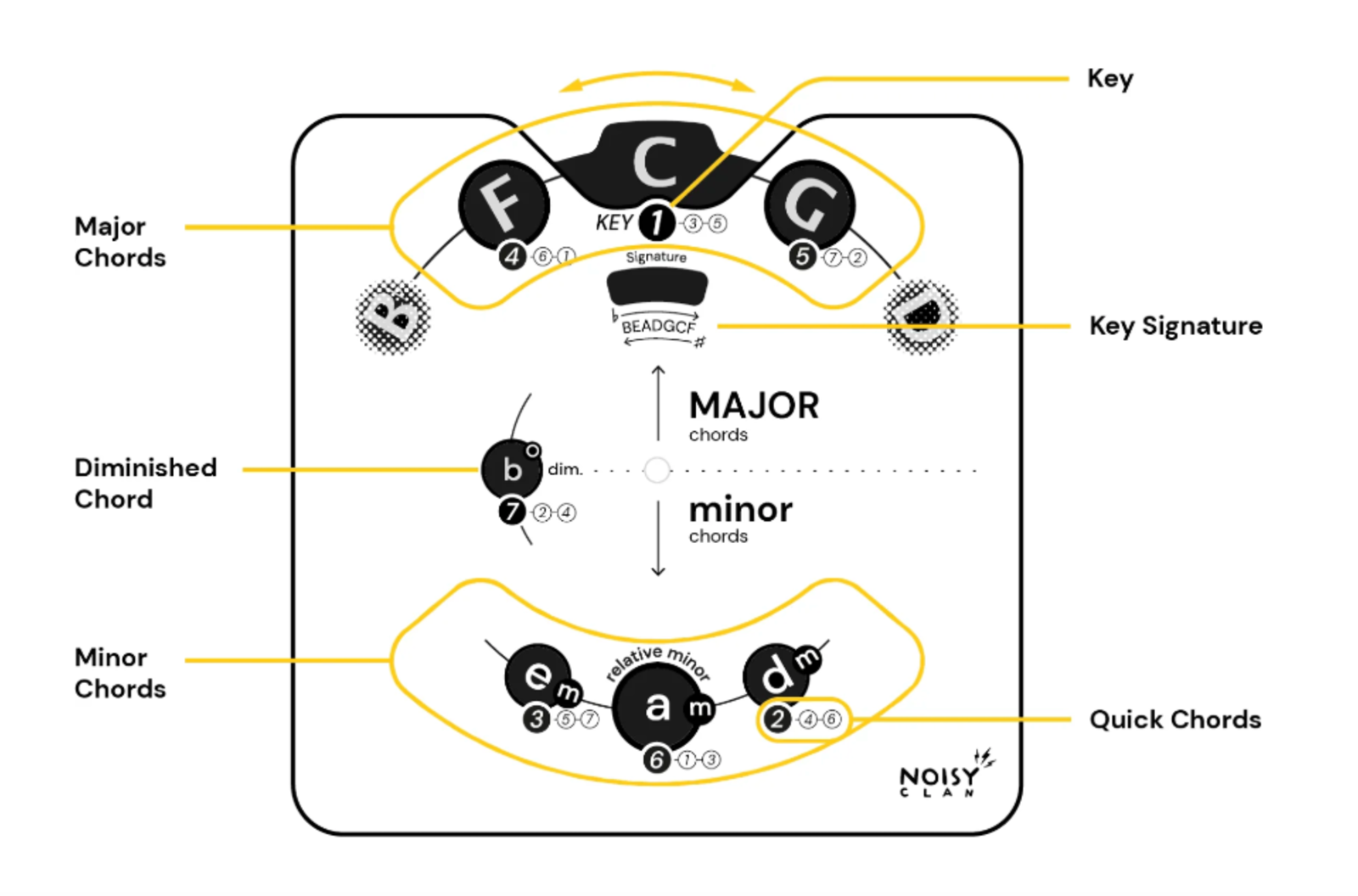
Bring it Full Circle
This is where chords and scales come together. Scales are the building blocks of music theory. Chords live within scales. Understanding scales helps you grasp concepts like key signatures, chord construction, and modes. Chords are key to understanding music theory concepts like harmony, scales, progressions, and modulation.
Transpose Music with a Turn of the Wheel
Once you understand chords, you can easily transpose a song into a different key to suit different vocal ranges or musical contexts. This is useful for adapting songs or playing with other musicians.Build Chord Progressions
12 common chord progressions are shown on the back of this decoder. Build triads with the numbers underneath the windows.Composition and Songwriting
This tool helps make exploring harmonics, improvisation and songwriting easy. It quickly organises keys, chords, notes, and scales according to what they have in common and how good they sound together.Let customers speak for us
Shop All Guitar Accessories


